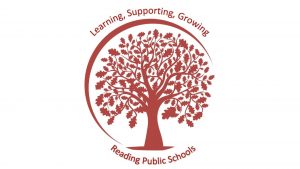Reading, MA — The path to universal full-day kindergarten (FDK) in Reading was the central focus of the School Committee meeting on January 20. Superintendent of Schools Thomas Milaschewski opened the conversation by stating, “Early childhood [education] is at the foundation of a high-quality district.”

Milaschewski shared concerns about the pandemic’s effects on early childhood education, citing the continual interruptions in the experiences of the youngest learners as they come into kindergarten. “[These children] are coming with fewer skills than in the past,” Milaschewski shared. He then provided four reasons for the committee to pursue FDK.
Milaschewski shared that FDK is foundational for district improvement: FDK improves educational outcomes for students, FDK enhances Reading’s reputation as a top-tier district, and finally, FDK will create a positive impact on the entire community. School Committee member Shawn Brandt added his concern that some families are unable to start their school experience in their neighborhood school under the current system. “We effectively penalize half-day families by only offering that program at two schools,” Brandt declared. Fewer than fifteen percent of kindergarten families in Reading have opted for the half-day program in the 2021-2022 school year.
Chair Thomas Wise presented seven models that the committee could adopt to solve the issue. These ranged from making no changes and continuing to offer tuition-based FDK to a “Full Jump in,” which would institute universal tuition-free FDK next year. Wise also presented models that would reduce tuition by only funding direct costs, a six-year path, and three different three-year paths.
Wise pointed out that the three-year “Cliff Jump” model is the one represented in the proposed Fiscal Year 2023 budget that the School Committee has been considering. Tuition for FDK in this model would be reduced to $3,000 next year, $2,000 in the following year, and to $1,000 in year three, with FDK being free in year four. The current tuition of $4,450 is the highest in the state. This model would use the kindergarten revolving fund to offset costs in FY 2023 but would carry a $657,000 price tag in FY 2024.
School Committee members Erin Gaffen and Sarah McLoughlin suggested a preference for a three-year step model with free FDK for high-needs students. Gaffen also suggested a sliding scale of tuition for the three remaining years that tuition is charged. McLaughlin agreed, though asked what other initiatives would not get funded as a result of developing this plan. Carla Nazzaro indicated that she would support any of the three-year plans, including this one. “Six years is just too long,” Nazzaro commented. According to Wise, the option preferred by Gaffen and McLaughlin would reduce tuition to $3,600 next year, $2,650 in 2023, and $1,450 in 2024 while providing free FDK for all students defined as “high needs” by the state, including English language learners. The revolving fund would be used to offset most costs in FY 2023 but would cost an additional $410,912 in FY 2024.
While understanding the need to look at the three-year models, Brandt suggested that the committee pursue the “Full Jump in” model, which would provide free FDK to all families starting next year. This model would utilize the revolving fund to offset costs and would require an additional $693,000 of funding in FY2023. There would also be a need for an additional $555,000 in FY 2024. Brandt did recognize that one of the three-year models needs to be worked on from a timing standpoint as the final budget is due for delivery to the town manager on January 31. Brandt did comment, however, “If we are saying that students need [FDK], how do we say that the next three cohorts of kids coming in, all of whom have had a disrupted early childhood experience, are not going to get that full experience.”
While agreeing to advocacy for a “Full Jump in,” School Committee member Chuck Robinson expressed concern over its financial implication and shared a preference for the three-year “Cliff Jump” model presented by the administration in the budget. Gaffen shared that the “Full Jump in” felt “unsettling” and that she did not want to get into a situation where cuts needed to be made in other areas.
Finance Committee chair Ed Ross spoke, adding, “For me, it all comes down to sustainability.” He also recommended that the School Committee suggest several options for achieving its goals.
The School Committee voted 6-0 to provide guidance to the administration to move forward with the “three-year high needs” model for the final budget. Milaschewski described the vote as “exciting and encouraging.”
“Having a path [for FDK] is a step in the right direction,” Milaschewski declared. He also committed to looking for ways to be even more aggressive.
The School Committee continued with a brief discussion on the entire budget. Wise described the current budget proposal as the most aggressive “targeting specific needs” budget he had seen. He continued to express his appreciation of the budget’s “tactical approaches towards strategic solutions.” The School Committee will vote on the final budget at its January 27 meeting.
The School Committee adjourned at 9:45 pm.
